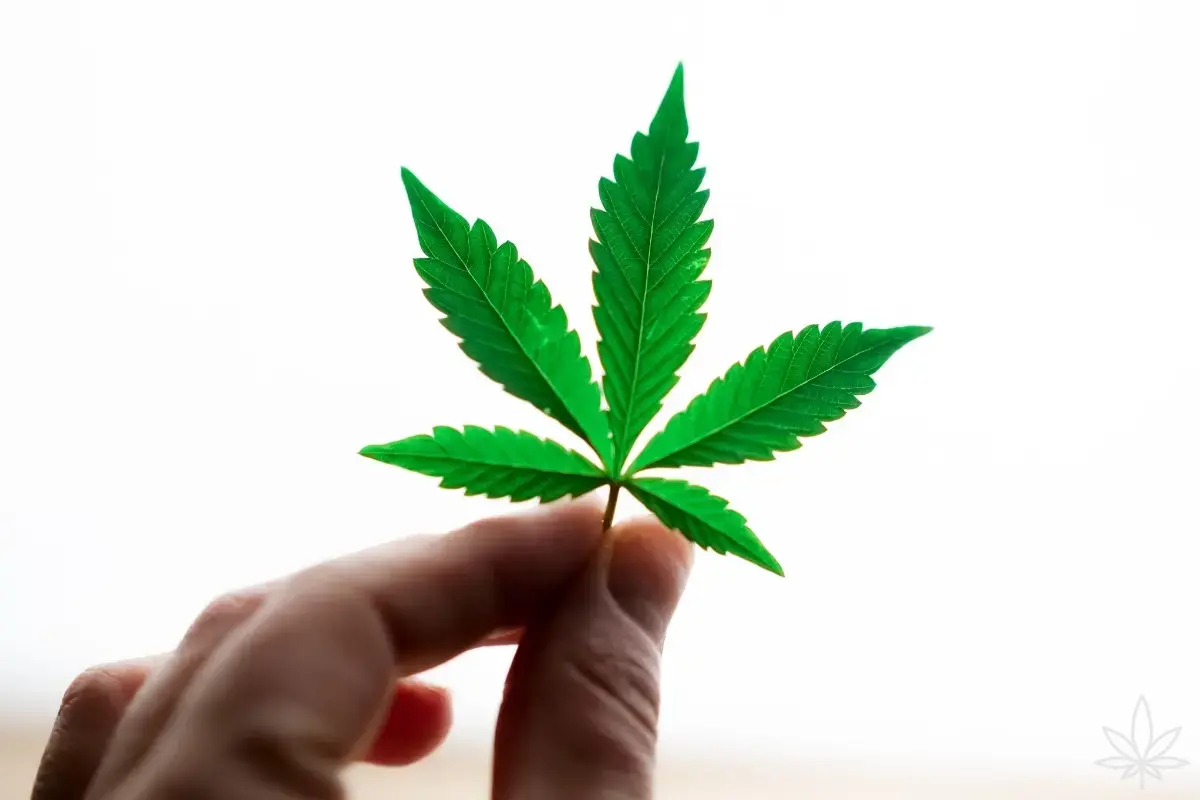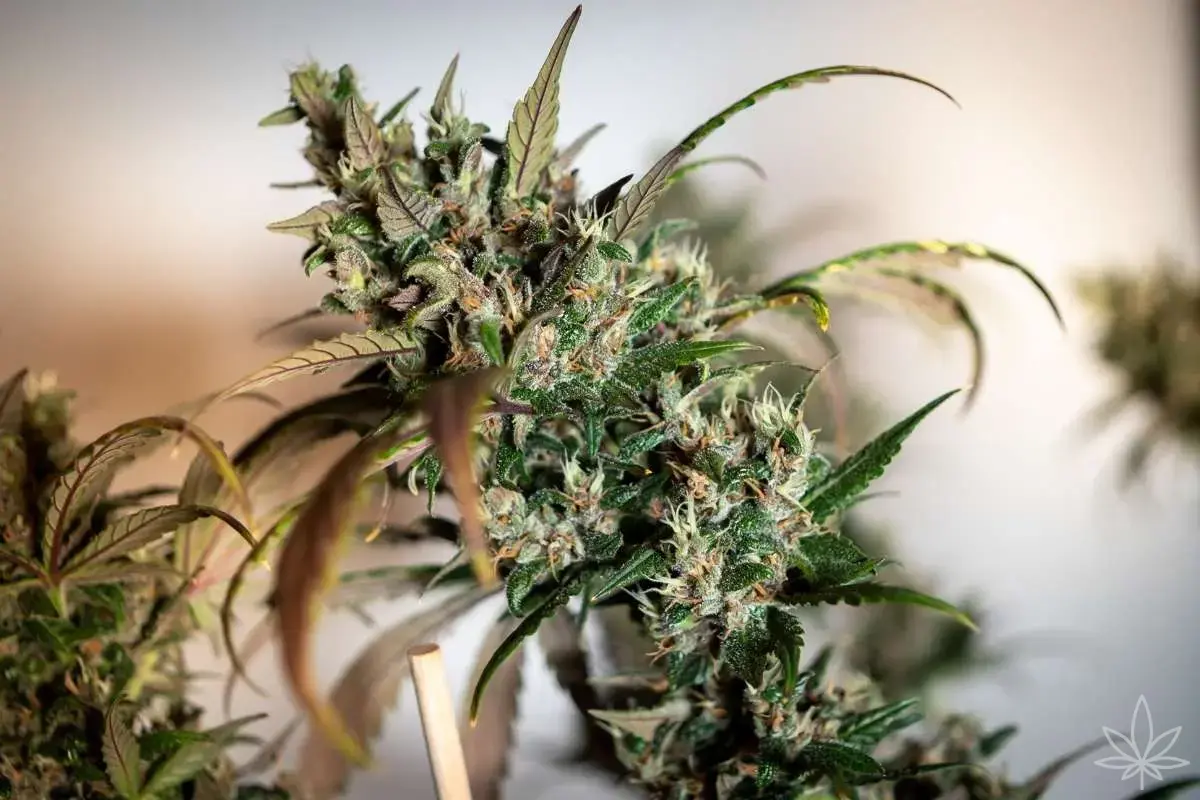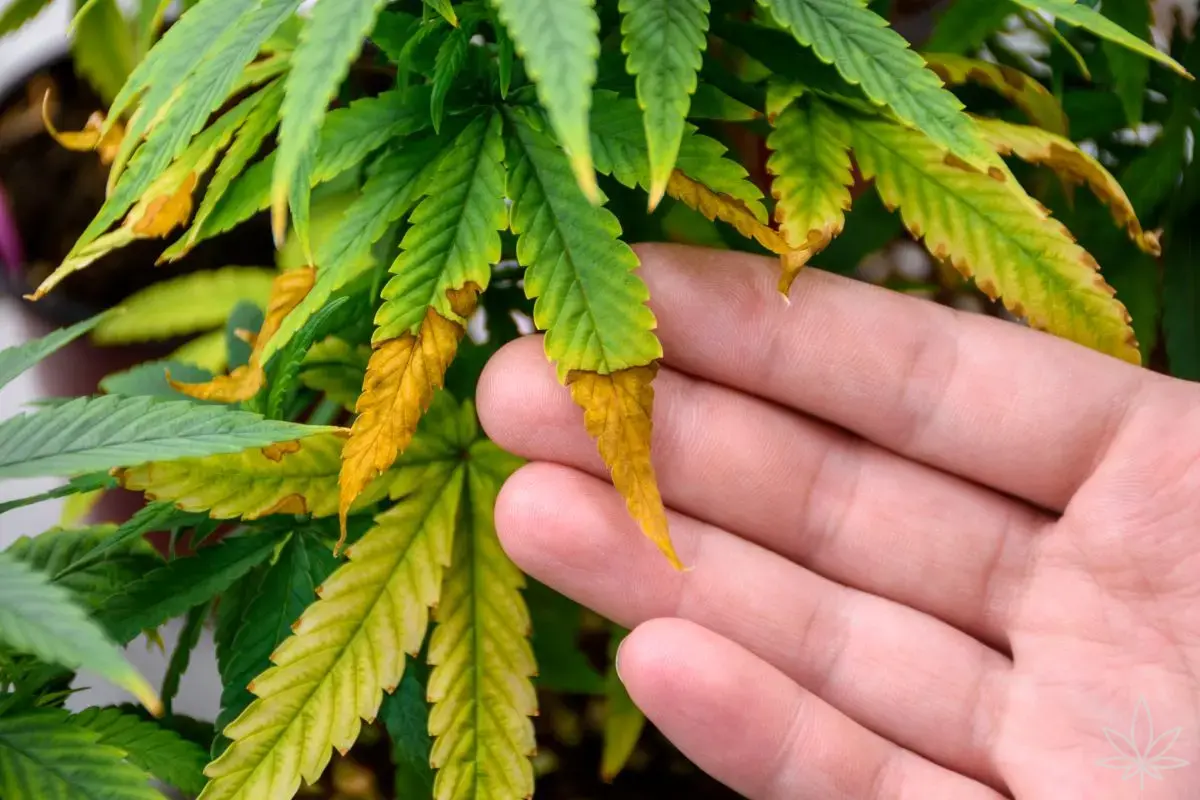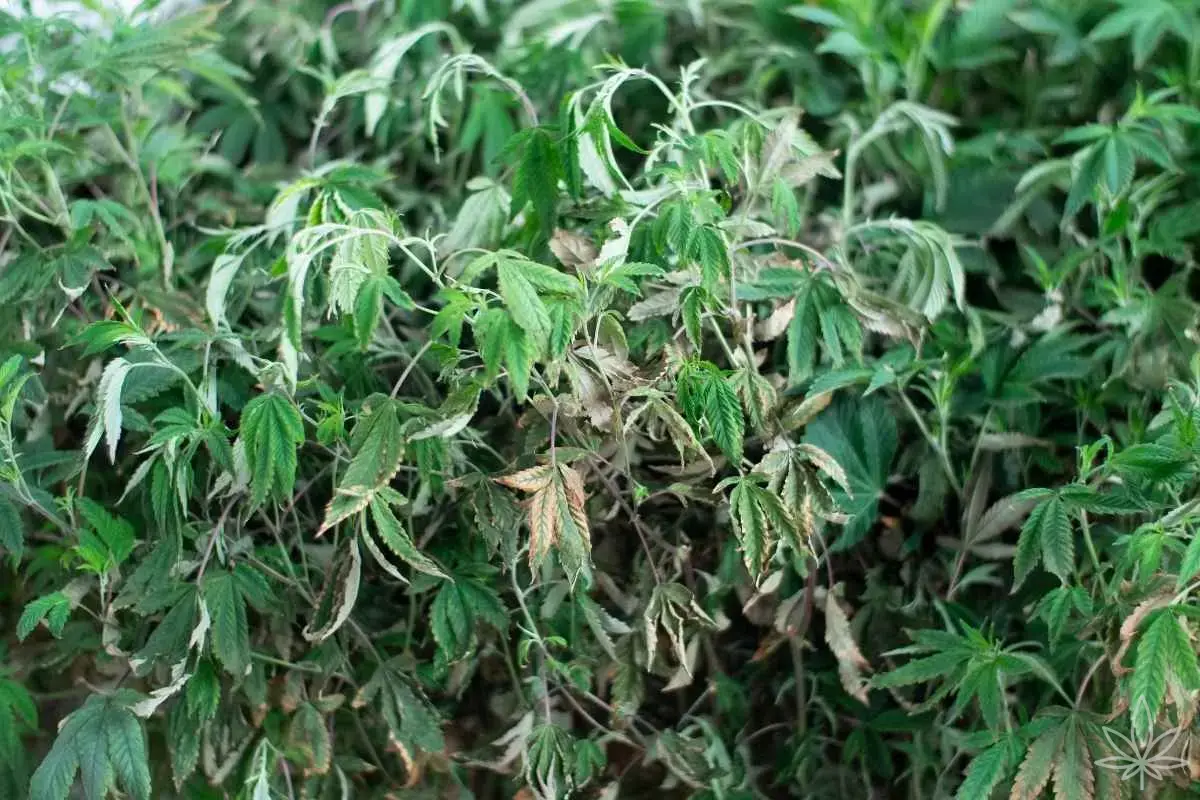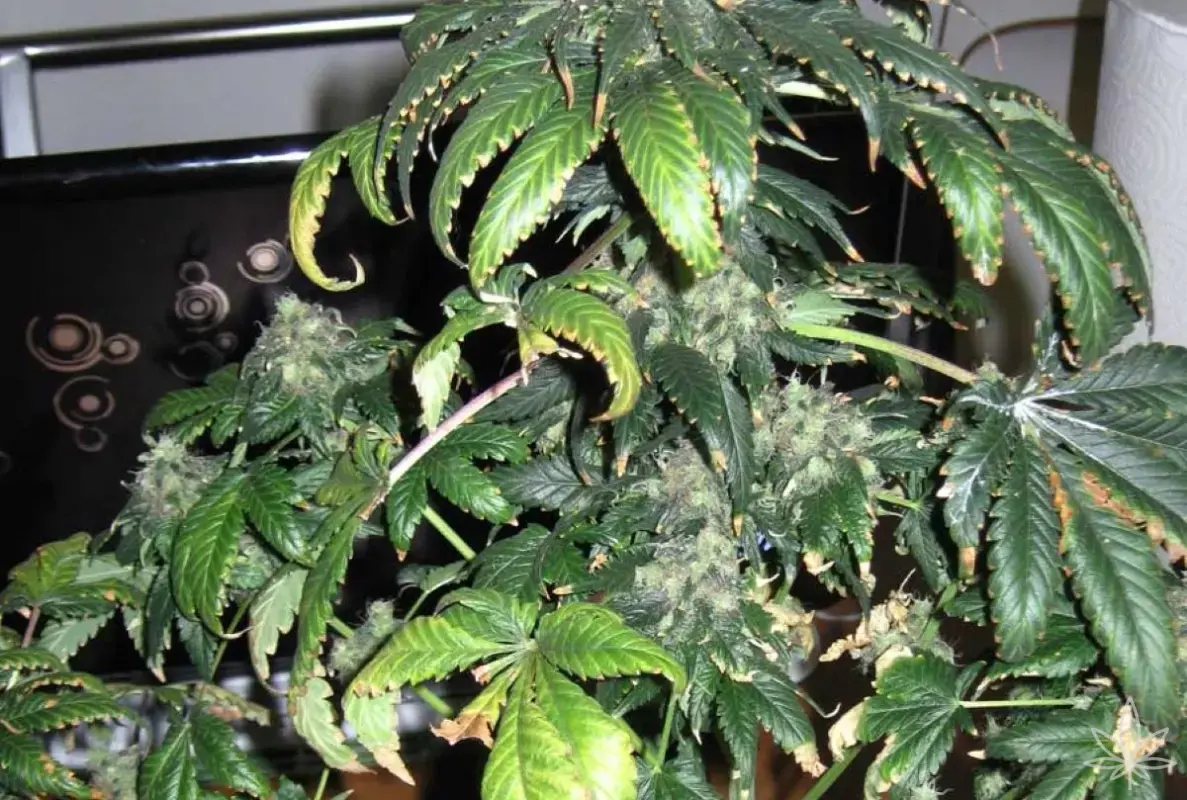First things first — what’s this all about?
In soil the plant has a big buffer. In coco, hydro and aero that buffer is tiny. Think of it like riding a bike: soil is a wide path; hydro is a narrow curb. So when something drifts (pH, amount of nutrients, oxygen in water, temperature), the leaves show it fast — sometimes in 1–3 days.
Two simple ideas:
- pH — how acidic or alkaline the water/solution is. Wrong pH = the plant can’t eat even though food is right there.
- EC — how “salty” the water is (nutrient strength). Too low EC = hungry plant. Too high EC = “oversalted” plant.
Working ranges we use here:
Soil: pH 6.3–6.8. Coco: pH 5.8–6.3 (sweet spot ~6.0–6.2). Hydro/Aero/Rockwool: pH 5.5–6.0.
How to read leaves — rules that work for every medium
- Where do symptoms start?
Older, lower leaves → usually missing the “mobile” basics the plant can move upward (N, P, K, Mg).
New, top leaves → usually missing “immobile” elements the plant can’t move (Ca, Fe, B, Zn, Cu, Mn, Mo). - What’s the pattern?
Light areas between green veins → think Mg, Fe, Mn, Zn.
Brown edges and tips → often K, sometimes salt/wind/light.
Even yellowing of the whole blade → N (down low) or S (up top). - Golden rules, in plain words
- Fix pH and root oxygen first, then touch the bottles.
- EC is a hint, but leaves give the verdict.
- Watch new growth — it tells you if the fix worked (old spots won’t vanish).
COCO COIR — “almost hydro,” with a few quirks
Why can coco be picky?
Coco likes to “hold on to” calcium (Ca) and magnesium (Mg). That’s why early coco grows often look like Ca/Mg issues even when you feed normally. Keep pH 5.8–6.3 (sweet spot ~6.0–6.2).
Most common symptoms and quick, simple fixes
| Leaf symptom (coco) | What usually causes it | What to do right now |
|---|---|---|
| Light “fields” between green veins on lower leaves (Mg) | pH too low for a few days, low Mg, lots of K | Set pH 6.0–6.2; Epsom salt 0.3–0.5 g/L for 1–2 waterings; trim K by 10–20% |
| Ragged edges + tiny spots on new leaves (Ca) | pH <5.8, high K/Na, water too soft or too hard | pH 6.0–6.2; Cal-Mag 0.5–1.0 ml/L for a few irrigations; stabilize water source |
| Browning edges on older leaves (K) | not enough K or a secondary K issue from salt/Na/Ca | raise K moderately; reduce sodium (better water); keep pH ~6.0 |
| Yellow, thin new leaves (Fe) | pH >6.3, freshly flushed coco without micros | pH 5.9–6.1; add micros (Fe chelate in your base nutrient) |
How to water coco?
Often and little is better than rarely and a lot. Daily (big plants even 2–3×/day) to a light runoff, so ions stay balanced.
Solution EC (starting points): veg 0.8–1.6 mS/cm, bloom 1.4–2.0 mS/cm (strain and light may shift this).
HYDRO (DWC/RDWC, NFT, ebb&flow) — fast and precise
Why does everything happen so fast here?
Because there’s no medium to slow down mistakes. When pH/EC, oxygen in water or solution temperature drift, leaves react at once. Work in a tight pH window 5.5–6.0 (often 5.6–5.8).
Typical cases and simple solutions
| Symptom (hydro) | Usual cause | Do this “right now” |
|---|---|---|
| Lemon-yellow top with green veins (Fe) | pH >6.0 for a day or two | drop to 5.6–5.8, add micros |
| Light patches on upper leaves (Mn/Zn) | pH too high, too few micros | pH 5.6–5.8; give a full micro package |
| Brown leaf edges like K burn | EC too high or too little oxygen | reduce EC 10–20%, add aeration (stones, stronger pump), keep solution 18–21 °C |
| “Sad” leaves with firm stems | solution too warm → less oxygen, root stress | cool to 18–21 °C, improve circulation; check roots |
EC/PPM starting points: veg ~0.7–1.5 mS/cm, bloom ~1.2–2.2 mS/cm. Let pH drift within 5.5–6.0 — different elements are easiest to take up at different points in that window.
AEROPONICS — wonderful… if the nozzles spray
Roots live on mist. Any break in spraying is drought for roots. Leaves can look like K/Ca/Mg issues, but the real cause is patchy misting (clogged nozzles/filters) or a too-warm solution.
Daily aero check:
- Are all nozzles spraying evenly?
- Does the mist reach all roots?
- Solution 18–20 °C, pH 5.5–6.0.
- If leaves “beg” for Ca/Mg — first fix the spraying, and in parallel add Cal-Mag.
ROCKWOOL — don’t skip the “acid bath”
Fresh rockwool is alkaline. Before planting, soak cubes/slabs in solution at pH ~5.5. Then treat it like hydro (pH 5.5–6.0). Avoid dry “pockets” in the slab — they create channels and “weird deficiencies” on only part of the plant.
Table 1 — pH ranges by medium (safe, working ranges)
| Medium | Min–max working pH | Safest “center” | Notes |
|---|---|---|---|
| Soil | 6.0–7.0 | 6.3–6.8 | wide window, lots of buffer |
| Coco | 5.5–6.5 | 5.8–6.3 | watch Ca/Mg (coco “likes” them) |
| Hydro/Aero/Rockwool | 5.5–6.0 | 5.6–5.8 | tight window, fast reactions |
Table 2 — Target solution EC (mS/cm) by medium and stage
| Medium | Seedling / early veg | Late veg | Flower |
|---|---|---|---|
| Coco | 0.8–1.2 | 1.2–1.6 | 1.4–2.0 |
| Hydro (DWC/RDWC/NFT/ebb) | 0.6–1.0 | 1.0–1.5 | 1.2–2.2 |
Tip: “Hungry” strains, strong LEDs and cool, well-aerated solution often like the upper ends. Sensitive plants and warm solution — stay near the lower ends.
Charts (PNG)
- pH ranges for different media:
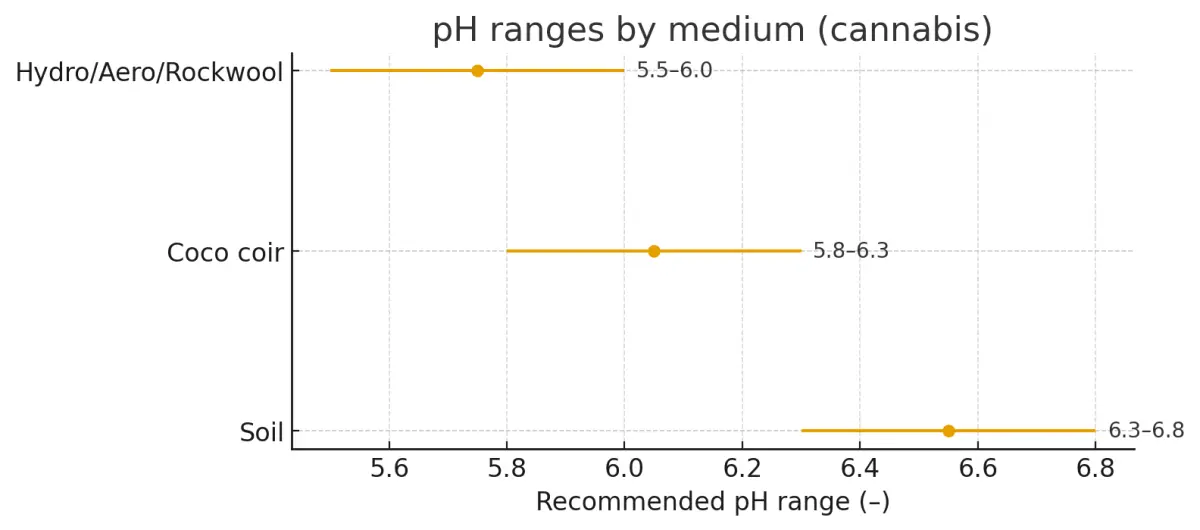
- Target EC by medium and stage:
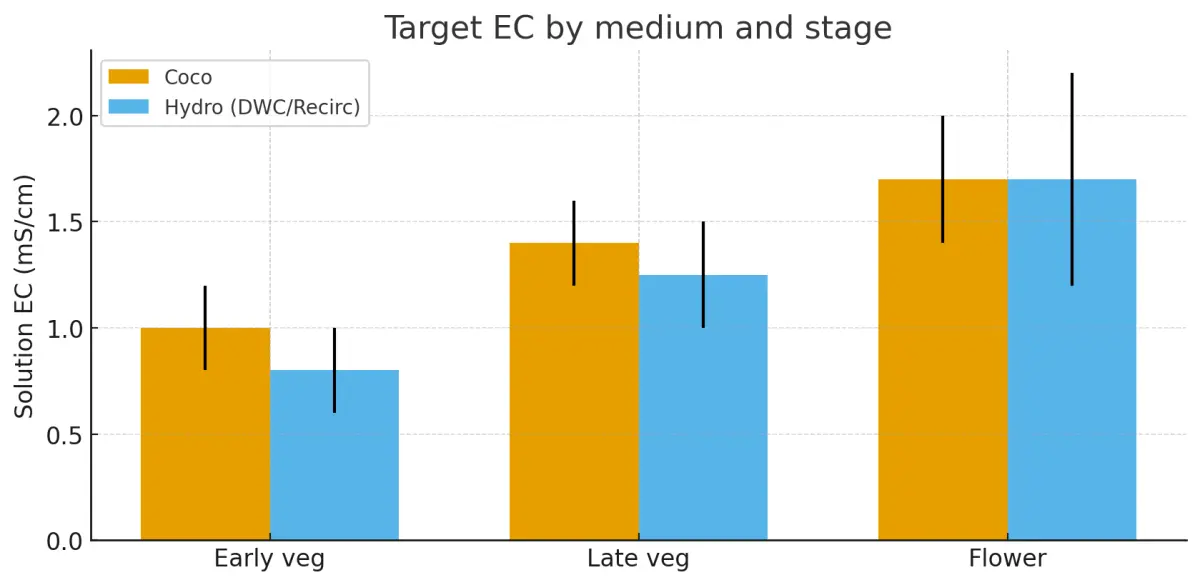
“False alarms” in soilless — not always a fertilizer problem
| Medium | Looks like… | Real problem | Do this |
|---|---|---|---|
| Coco | Mg/Ca at the start | Coco “grabs” Ca/Mg | 2–3 waterings with Cal-Mag, pH 6.0–6.2 |
| Hydro/DWC | “K burn” (brown edges) | EC too high or too little oxygen | –10–20% EC, more aeration, solution 18–21 °C |
| Hydro/Aero | Fe/Mn missing on new growth | pH >6.0 for a day | pH 5.6–5.8, full micros |
| Aero | “Ca/Mg drama” everywhere | Nozzles/filters not spraying evenly | Clean nozzles, swap filter, verify cycles |
| Rockwool | Random blotches | Water channels / uneven moisture | Improve irrigation, even drip, avoid over/under-wetting |
Micros and macros in coco/hydro — read it like a map
Mobile nutrients (N, P, K, Mg) — issues start on old leaves.
- N: even yellowing → give ½ dose of grow, keep pH in range, check new growth in 2–3 days.
- P: dark green, sometimes purple; plant “stalls” → pH 5.8–6.0, solution 18–22 °C, moderate P.
- K: brown edges → check EC and oxygen first; only then raise K.
- Mg: light “fields” between veins → Epsom 0.3–0.5 g/L (1–2 times), pH on point.
Immobile nutrients (Ca, Fe, Zn, Cu, Mn, B, Mo) — issues start on new leaves.
- Ca: ragged edges, specks → Cal-Mag and tight pH control.
- Fe: “lemon” tops → drop pH to 5.6–5.8, add micros.
- Zn/Mn: gentle interveinal fade + freckles → pH in range, full micros.
- B: deformed tips → steady moisture (key in aero/coco) and a trace-mix.
“Emergency 24-hour” paths — quick rescue plans
Coco (leaves beg for Ca/Mg/Fe):
- Check pH in and out (drain): aim 5.8–6.3.
- Two waterings with Cal-Mag (0.5–1 ml/L) at ~6.0 pH.
- For 2–3 days water more often, small amounts, to a light runoff.
Hydro/DWC (tops pale, edges brown):
- pH 5.6–5.8, EC –10–20%, solution 18–21 °C.
- Add more air (stones, stronger pump).
- Add micros. Watch new growth after ~48 h.
Aero (leaves fussy “for no reason”):
- Descale and clean nozzles/filters; make sure mist hits all roots.
- Make sure cycles don’t stop (power, timers).
- pH 5.6–6.0; add Cal-Mag if needed.
The plant drinks, breathes, and “talks”
Picture a root as a straw and a lung at the same time. Straw — it sips water with food. Lung — it needs oxygen (yes, roots breathe). If the water is too warm or lacks bubbles, the plant runs out of air and leaves look sad. If pH drifts, the food sits on the plate but the plant’s mouth is shut. That’s when you see yellowing, brown edges, pale tops. This is why I repeat: pH and oxygen first, bottles later. Simple idea — huge impact in coco, hydro and aero.
One-paragraph wrap-up
- Coco: mind Ca/Mg and pH 5.8–6.3, water often and lightly.
- Hydro/DWC:oxygen, temperature, pH — the three pillars; pH 5.5–6.0 and listen to your leaf tips.
- Aeroponics: make continuous spraying solid, then tweak the rest.
- Rockwool: start with a pH 5.5 soak, then even drip and no channeling.
When those line up, most “deficiencies” fade before they spread. What’s left is small touch-ups, calm tents — and harvests that look great under a loupe.

